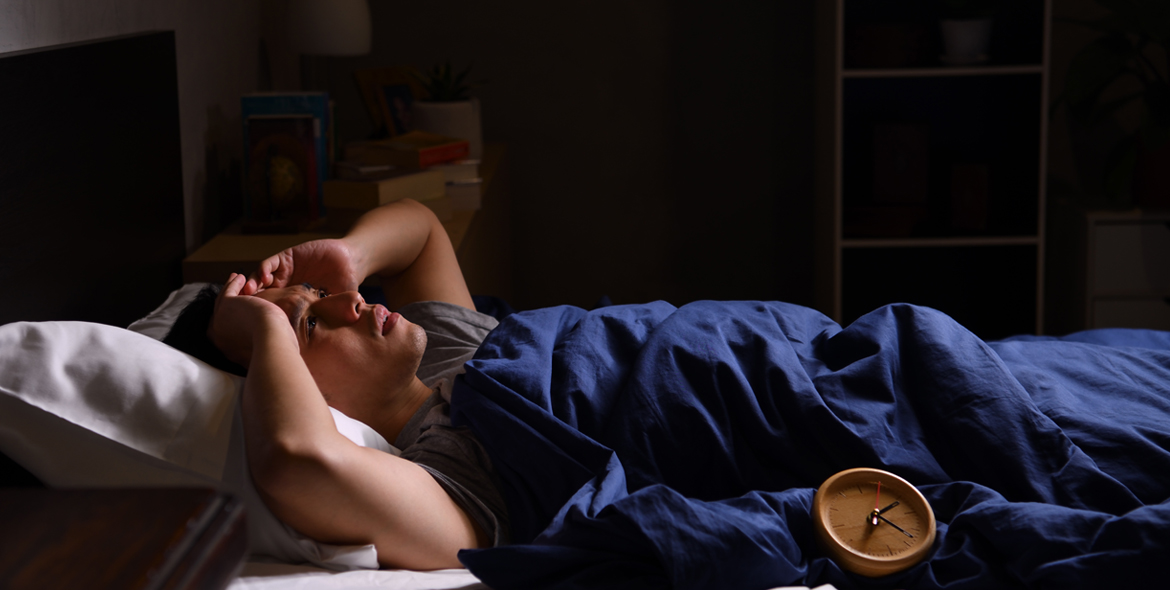5 Foods to avoid & 8 Foods That Help You Zzzz
- Anthony Andrews
- March 12, 2021
- Drinks Sleep Tips / Bedtime Tips
Another says a serving of mashed potatoes sends him off to sleep in a hurry.
And then you have another who quit eating after 7pm because it throws his bedtime into a spiral.
So, which foods help us sleep and which may trip us to staying awake the entire night?
While avoid caffeine close to bed time is an obvious move, drinking a juice with ‘ruby red pigments’ isn’t so obvious.
In a moment I’ll share with you what happened when researchers at Louisiana State University wanted to figure…
What would happen if they dropped the ‘quick fix’ prescriptions and opted for 2 glasses a day of this natural juice.
(Hint: participants went from insomnia nights to extending their sleep by more than an hour.)
📎What foods can help you to sleep?
📎 Foods to avoid before bedtime
📎 Wrap Up
What foods can help you to sleep?
Insomnia is one of the most common types of sleep disorders, affecting one-third of adults, according to statistics.
People suffering from this condition are unable to fall asleep, and if they wake up during the night, they are unable to sleep again.
Because of the restless and disturbed sleep, they wake up fatigued and tired.
It can affect the quality of life and work performance as it drains energy and alters one’s mood and health.
However, there are some foods that can help you fall asleep.
The following foods are ideal bedtime snacks:
1. Tart Cherry juice
This juice contains melatonin that can help Insomniac people.
It helps to improve the duration and quality of sleep in both men and women.
Several studies have found that tart cherry juice can help manage insomnia symptoms and increase sleep duration by 90 minutes in older adults.
Tart cherry juice has numerous advantages, including immune support and muscle relaxation.
2. Almonds
The next sleep-promoting food on a list is almonds that are a rich source of melatonin and provide a sufficient quantity of magnesium.
Research studies support that both magnesium and melatonin can improve the quality of sleep.
Almonds are also a rich source of oleic acid that is very helpful in inducing sleep in animals.
In fact, it was concluded in a study that oleic acids can help depressed individuals suffering from sleep disorders.
3. Omega-3 Foods
Fish species such as trout, tuna, salmon and mackerel contain large concentrations of Omega-3, Vitamin D, and melatonin.
The combination of Omega 3 and Vitamin D increases serotonin production that can effectively improve sleep quality.
Studies show that high concentrations of vitamin B12 in Salmons can induce sleep in the participants.
Another study suggests that people who consume Salmon for 6 months can sleep faster than subjects who consumed other types of meats.
4. Lettuce
This essential component of a salad may not seem very exciting as a bedtime snack, but it is very potent for sleep.
Lettuce can promote relaxation and sleep in individuals as it contains lactucarium.
If you don’t like eating salad at night, you can try lettuce tea with a little honey in it.
5. Turkey
This Thanksgiving staple is a rich source of phosphorus, Selenium and other proteins that can promote a good night’s sleep.
The other benefit of eating Turkey is that it contains high concentrations of tryptophan.
This amino acid is not produced in our body, so we have to acquire it from what we drink and eat.
Tryptophan amino acid helps the body produce the relaxing hormone serotonin that helps in the production of melatonin.
Some studies show that if an individual suffering from insomnia consumes large concentrations of tryptophan, it can result in good sleep quality.
Scientists believe that the role of tryptophan is not sleep-inducing, but it supports peaceful sleep.
6. Milk
Milk is a rich source of vitamin D and Calcium that can help in getting good quality sleep.
In 2013 indicated that people with low levels of calcium are most likely to get difficulty falling asleep or enjoying restorative sleep.
If you don’t like the taste of milk, you can add a little honey to it.
Interestingly, a 2018 study concluded that patients who drank milk and honey combo found it easier to sleep.
7. Kiwi
This small, green fruit packed with vitamin C and K and low in calories can serve as one of the best food options before bedtime.
Studies show that Kiwis can improve the duration and quality of sleep by increasing serotonin production in the body.
Research shows that consuming Kiwi before bedtime can improve sleep quality due to its antioxidant properties.
8. Chamomile tea
Have you ever tried chamomile tea and felt sleepy?
For decades, chamomile has been used to reduce stress and improve sleep.
This herbal tea contains antioxidant apigenin that can induce sleep by interacting with receptors in the brain.
Multiple studies concluded that chamomile tea could improve sleep quality.
Is It Bad to Sleep After Eating a Big Meal?
“I can’t sleep well when I know the food is feeling cold in the fridge.”
Is this your mantra before going to sleep?!
If yes, then you need to toss it outta the window, cause it might be the culprit that forces you to listen to the clock tick without a wink of sleep till morning.
Yes! You read it correctly!
Food before sleep, especially a heavy meal, is one of the biggest enemies of your rest.
A study published in the Journal of Clinical Sleep Medicine found that food intake, specifically a heavy meal, 30 to 60 minutes prior to going to bed increases sleep latency.
In terms of nutrition, fat and carbohydrate are the deadliest to your sleep. Also, high fat intake, in general, can have a negative impact on your sleep time and quality.
Now, the question is, when’s the best time to have a heavy meal dinner?
If you want to have a restful sleep, then have a carbohydrate-rich dinner at least 4 hours before going to bed.
If your stomach growls some time after dinner, then have a small snack, or a glass of milk, to tame it down!
Foods to avoid before bedtime
People who suffer from sleep disorders should avoid foods that can aggravate their symptoms, such as those that are difficult to digest or keep their minds alert.
The list of foods to avoid before going to bed are provided below:
1. Stimulant-containing foods
A cup of coffee is a great way to kick start the day. However, it contains a high concentration of caffeine, which stays in our bodies for hours and has a significant impact on our sleep-wake cycle. It is best to avoid coffee for at least six hours before going to bed.
Dark chocolate contains the same amino acid which is present in cheese and cured meat that makes you alert. It also contains theobromine and caffeine, which might cause sleeplessness if consumed more than the recommended amount.
Similar with coffee, matcha green tea contains caffeine, which can cause jitteriness, headaches, constipation, heartburn, and insomnia if consumed in large amount.
Black Tea contains up to 4% of caffeine and has the highest caffeine content than other tea variety. Despite its benefits in improving mental alertness, excessive consumption will exacerbate your sleep disorder.
2. High-Fat Dairy Products
Studies have shown that eating too much of dairy products can contribute to heart disease, diabetes, breast and ovarian cancer.
It could also lead to weight gain, a risk factor of sleep apnea.
Since it has a significant amount of saturated fat – it can cause sleep deprivation.
3. Food’s high in capsaicin
This includes cayenne pepper, curry, sriracha, and tabasco sauce, can cause coughing, nausea, nasal irritation, elevated temperature, and burning sensation when consumed in large quantities.
It can also cause acid reflux or heartburn leading to a restless night’s sleep.
4. Vegetables
This includes cauliflower and broccoli contain large concentrations of insoluble fiber, which takes a lot of time to digest.
So, even if you drift off, your body would still be working to digest the food that can disturb your sleep quality.
Similarly, meat such as ground beef or steak should also be avoided right before bedtime.
5. Alcohol and Sugary Products
Red wine is famous for creating a sleepy mood but alcohol has the exact opposite effect.
Too much alcohol consumption can produce an increase in insulin secretion, which can lead to a decrease in blood sugar levels.
It can also disrupt the sleep-wake cycle and affects the later stages of REM sleep.
Since alcohol has a sedative effect, it is advisable to avoid it right before going to bed.
Sugary products such as fruit juices, sports drinks, chocolate drinks, canned fruits, commercial smoothies, ice cream, and soda are unhealthy and has a negative effect on our sleep wake cycle.
It contains large amount of sugar that will keep you awake for a long time.
It has also been linked to restless sleep.
Wrap Up
We are what we eat.
Food has a significant impact on our sleep-wake cycle.
Some foods can help us sleep quickly, while others can delay or cause restless sleep.
Make sure to know what you are eating and at what time to enjoy peaceful sleep after your favorite meal.
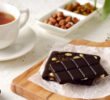
- September 6, 2021
7 Foods That Alleviate Anxiety
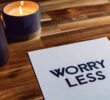
- August 27, 2021
Simple Ways to Battle Stress and Anxiety
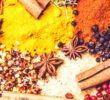
- August 24, 2021
Ancient Ayurvedic Medicine and Restful Sleep
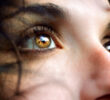
- August 12, 2021
